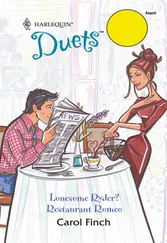I have not had that many women, is the truth, and this, pal, I know seems crammed with serial romance and grief, but I’m not quite through, and you will understand me at last as more that poor man on the east Texas hill with the wind in his last hairs, too thick in modern life, too thick in dream, too sad for years now. Maybe the girl in North Dakota mistook my sadness for kindness; defeat for gentleness. I look at an old photograph of myself at eight when I was just a boy and his dog under a cowboy hat. I was looking at the world across the cornfield, all ready to touch it all under the shade of my tall Hoot Gibson. Now I understand I have been witness to the worst fifty years in the history of the world. A tragedy that might make Caligula weep in commiseration. And I have had, you know, a relatively pampered life, although you see me puffing away on my smoke like a leathered vet, a tough cookie.
I used to be a considerable tennis player. So in my health I took it up again and got the game back quickly. I just had a tough time giving a damn about the score. Once I was playing with a friend and noticed a very tall pale woman through the fence on another court. She had her back to me. I saw she struck the ball with authority and grace. I wanted her within seconds of seeing her. I needed her. I had never had a tall woman, blond, and I was already in my mind rocking with her in great abandon like a dying cannibal. The nourishment would be endless, so generous.
My friend and I played well. We sat down exhausted in that fine chill of Southern twilight that heaven might be. I looked to my right and somehow, in the flesh, the tall pale woman was sitting between us. You never see that kind of European paleness in women on a Southern tennis court. I was amazed at her musculature, like strands of soft wire. Then I saw the hat. She had been wearing a big unusual hat that must have given her seven feet in height. She was looking toward my friend. I had never seen her face. When she turned I looked away and in great fear I stared through the woods. I wanted her more than ever but I would not see her face. I heard her voice, though, just the once up close.
I believe I’ve got something you want.
I grabbed my bag and got in my car and was almost home before I remembered my friend had no ride home, a long way. But I couldn’t go back and I almost threw up.
He called me, however.
Man, the woman was fast on you. What the devil, did you see all of her, fool? I’m much the better-looking, but all she gave me was a pouting ride home.
Who is she?
Somebody’s relative. Can’t remember. Too busy stealing looks. That’s quite a drink of water, long and cool, old son. You never knew her?
Never set eyes on her.
You’re an uncommon fool. And sober.
She has been around town now for a couple of years. I see parts of her here and there, but I walk or drive right away. I don’t intend to see her face because I know I’ve already seen it. When we touch one of us will die and be in the other’s dreams.
I am not insane. My affairs are composed in vicious sobriety. I did not see my tennis partner either for several months. Then he called at the end of the summer.
You don’t play anymore?
A few times, other places.
The tall one was back on the courts the other day. I swear, fool, she’s like something from the heart of winter in a foreign land. Same old story full of wolves where you’d stumble into a woman lying in the woods. I’m going to use a word. Alabaster.
I swallowed. You mean living or dead?
I’m not sure, mister.
Wolves.
I wonder, when she dies, likely by violence, will she be named like the lesser creatures in that story? Certain people believe all are given names when we die, not at birth.
The creature goes to heaven very baffled.
My God, what was all that about? it asks.
God says: Well, you were a wolf.
I see, says the wolf.
I wonder will it be that simple for her, or for me.
MOST OF THE LEAVES ARE FALLEN AND THIS PLACE LOOKS bombed all over again. Last February the ice storm of the century passed through the Arkansas delta into north Mississippi and lower Tennessee up to Nashville. Eleven at night, I was out in the front yard waiting for it, led by a special alarm, even horror, in the voice of the television weather-caster. Like a Jeremiah just miles ahead of the storm and pointing backwards down the road, raving. The edge of the storm came on in feather-light little BB’s, then began to drive and pile. The glass on the west of the house went pecking as if attacked by a gale of birds. Under the streetlights the swirls of white-silver turned almost opaque. It was a determined blizzard. A Southerner doesn’t see such driving ice more than twice in a lifetime. But at one I went to bed pleasantly aroused, rich as a caveman with the weather outside.
When my wife and I awoke, civilization as we knew it had mainly shut down. Luckily we had gas heaters. All electricity and water were gone; no telephone, all local radio stations kaput. Outside, the trees were draped sculptures in white, but in their quietness, a whole new storm of ghouls.
I am an addict of great weathers. Had I been in Hurricane Camille, which struck the Mississippi coast in 1969, I would be dead. I would have been the leading fool in some motel party hoisting a silver mug, crying havoc, hailing and adoring the wind until blasted off like a kite. Twelve years ago I decided I wanted Oxford for my home when I was having coffee at the Hoka, a café in a warehouse with a tin roof. A violent rainstorm came up. The sound of it thrashing on the tin moved something deep within me, a memory of another storm, my pals and me in a barn sleeping on hay when I was a boy: That tin roof was the margin against everything dangerous.
But at noon when limbs and then whole trees began falling around me, nothing was nice. The picturesque had turned into terror. Whatever we were, whatever good and rotten had transpired in this, our little jewel of a city, these trees had witnessed it. Now they were splitting apart and falling wholesale with mournful cracks and awful thuds. They were coming in the window glass like dead uncles. Next door, an eighty-foot tree fell on a neighbor woman’s Mercedes, the fetish of her life. She came out into the driveway wailing as I’ve never heard a white person wail. But you see a whole tree go over like that, and your grip on the universe goes. A small mob of slackers came down the block and stood around the big tree over the Mercedes. They grinned, sort of worshiping the event. But the woods running down a hill to the east went into an exploding mutual collapse too much like the end of the world, and everyone fled back inside.
All these old trees were like family in the act of dying; their agony was more terrible than the storm itself. We had been confident, even arrogant, with them around us, I realized. They’d been comforting brothers and sisters. Now the town was suddenly half as tall.
In the next weeks, trucks and electricians from four states poured into town. You would drive around very stupidly and like a zombie point to another great oak down, another smashed roof: Look at that, Sue. A vast pile of debris burned like the end of a war out on the west edge of town.
You hear a fatuous volume about growing, nurturing, and blossoming as a person nowadays. But great subtractions must be granted too. There is not always more of us, growing, flapping leaves around like idiot vines.
Here under a rare storm of ice we got our come-uppance. The leaves are gone, and we see it all over again. Lessness rules.
In the spring, I saw a histrionic young woman, the daughter of a highway patrolman, who had starred in one of Hood’s cheap movies. She was on her way to San Francisco. Enough of small-town life. I asked if she’d seen Hood. He hadn’t been on the courts this season. He was a decent player with a nice chopped approach shot. Hood too was Nordic and barely had an expression when he played. Once somebody asked me who was that frozen Swede I’d just played. But he had certain aggressions about his work and attended workshops for playwrights all over the country.
Читать дальше












